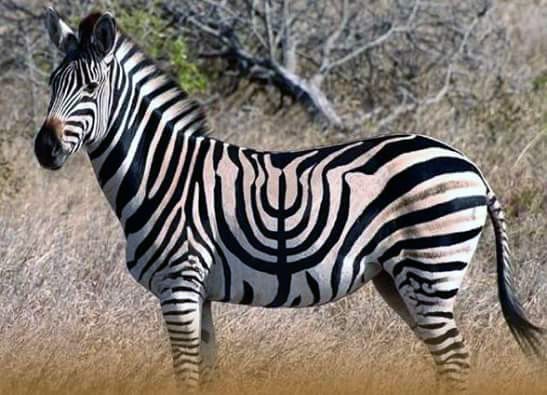
Africa — After almost 345 days in hiding, the elusive “Hanukkah Zebra” made his annual appearance on the Serengeti plains in the African County of Tanzania. The Zebra, which is called “Kwata Irmurungu” by local Maasai elders loosely translated as “Walking Potato,” has appeared for over three centuries and is generally regarded as a good omen for the Spring planting season.
“It is good to have the walking potato among the tea meat,” said Maasai village elder Kopikopu Englaem through The Fazzler’s budget translator. “He brings us great spoons for the Spring sister. Indaduaki aikunakino aja [the translator had no idea what this meant] is the look of the mother and the father. For many years the Kwata Irmurungu has blessed our daughters with great fertility.”
According to legend, the Zebra makes its first appearance the day before Hanukkah begins and hangs around more or less until the middle of January when it blends back into its zeal, or herd of other Zebras where it waits until next December. According to biologists at the University of San Diego, there are other “seasonally interesting” Zebras that occasionally emerge, however not with the consistency of the Kwata Irmurungu.

“Surprisingly, more people don’t know of these animals, especially in the age of the Internet,” said associate Professor of Biology Stephen Bottlehammer. “I suppose the Kwata Irmurungu gets all of the attention because people are waiting for it each year. But there’s also the “Jesus Zebra,” which shows up only every 15 years, and the even rarer Muhammad Ali Zebra, which no one has seen in almost 30 years.”
According to Dr. Bottlehammer, each year, they are surprised that the elusive Zebra makes an appearance.
“Well, given the destruction of habitat and climate change, we are frankly surprised that Kwata Irmurungu makes an appearance at all,” continued Professor Bottlehammer, “but we’re glad to see all the same and hope to see the animal next year.”






